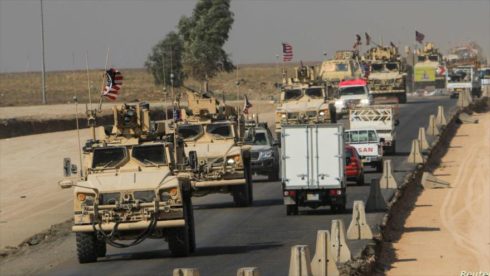In a significant show of military strength, the United States is deploying additional warships and fighter jets to the Middle East and nearby regions. This move is designed to enhance American defenses and support Israel amid escalating tensions with Iran. The orders, signed late Friday by U.S. Defense Secretary Lloyd Austin, come in response to threats from Tehran and its proxies, vowing retribution for the recent killings of a top Hezbollah commander in Lebanon and a Hamas political leader on Iranian soil.
The U.S. military reinforcements include the USS Abraham Lincoln aircraft carrier strike group, which is equipped with naval cruisers and destroyers capable of intercepting ballistic missiles. Additionally, an extra fighter squadron and land-based missile defense systems are being deployed to bolster the U.S. presence in the region. The Pentagon has emphasized that these measures are essential to mitigate potential regional escalations by Iran or its allies and to ensure robust U.S. force protection and support for Israel.
U S Pentagon’s Strategic Military Moves
The Pentagon has not disclosed the precise timeline for the deployment of these military assets. However, in a statement released Friday, the Pentagon described the moves as crucial for preventing regional escalation and protecting U.S. forces. The statement highlighted the importance of increasing support for Israel’s defense and preparing the U.S. for various contingencies that may arise due to the heightened tensions.
The decision to send additional military capabilities to the Middle East follows a pledge of further support to Israel made by Secretary Austin during a call with Israeli Defense Minister Yoav Gallant. Pentagon spokesperson Sabrina Singh reiterated the U.S. commitment to Israel’s security and detailed ongoing and future defensive measures to support Israel. The Pentagon’s steadfast support since the October 7 Hamas attack has been underscored as a clear message to Iran and its affiliated terrorist groups about U.S. resolve.
Escalating Regional Tensions
The current escalation stems from a series of violent incidents, including an Israeli strike in Lebanon that killed Hezbollah’s top military commander, Fouad Shukur, and the subsequent assassination of Hamas political leader Ismail Haniyeh in Tehran. Although Israel has not publicly claimed responsibility for Haniyeh’s death, Iran’s Supreme Leader Ayatollah Ali Khamenei has accused Israel and vowed severe punishment. Iranian officials have been vocal about their plans for retribution, with Major General Mohammad Bagheri stating that responses are being reviewed and will undoubtedly occur.
The U.S. has been actively working to prevent these tensions from spiraling into a broader regional conflict. U.S. President Joe Biden has been in discussions with Israeli Prime Minister Benjamin Netanyahu to bolster Israel’s defenses, including new defensive U.S. military deployments. The Pentagon’s recent actions are aimed at deterring further aggression from Iran and signaling that Israel will not face these threats alone.
Historical Context and Future Implications
This is not the first instance of the U.S. enhancing its defensive posture to support Israel against potential Iranian attacks. In April, the U.S. coordinated with allies in the Middle East to thwart a large-scale drone and missile attack by Iran, a move described by a U.S. official as an “incredible military achievement.” However, the current situation presents new challenges, and it remains uncertain whether a similar coalition will deter another Iranian attack on Israel.
Retired U.S. Vice Admiral Robert Murrett noted that Iran is likely to carefully consider its response to the assassination of Hamas leader Ismail Haniyeh. The implications of any direct or indirect attack on Israel are significant, and Iran’s decision-making will be influenced by these regional dynamics. Despite the heightened tensions, Pentagon officials maintain that further escalation is not inevitable and emphasize the potential for diplomatic solutions, such as a cease-fire deal between Israel and Hamas, to de-escalate the situation.














